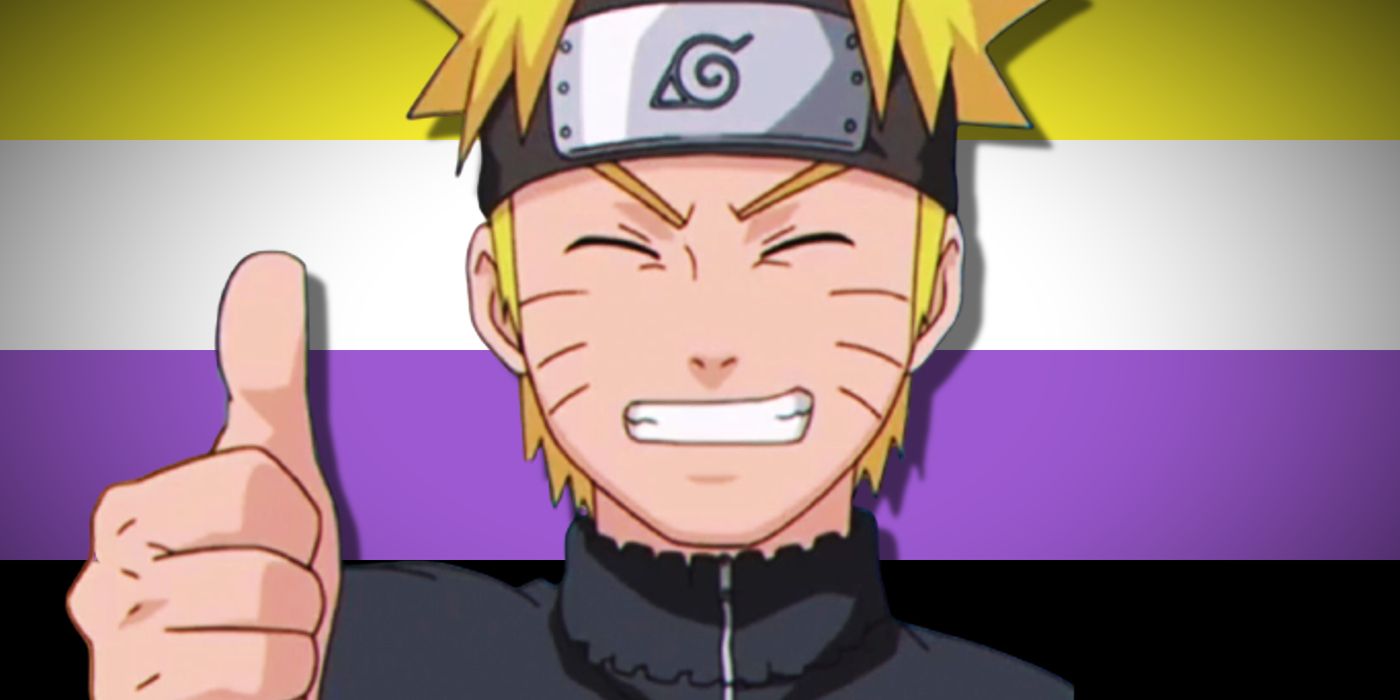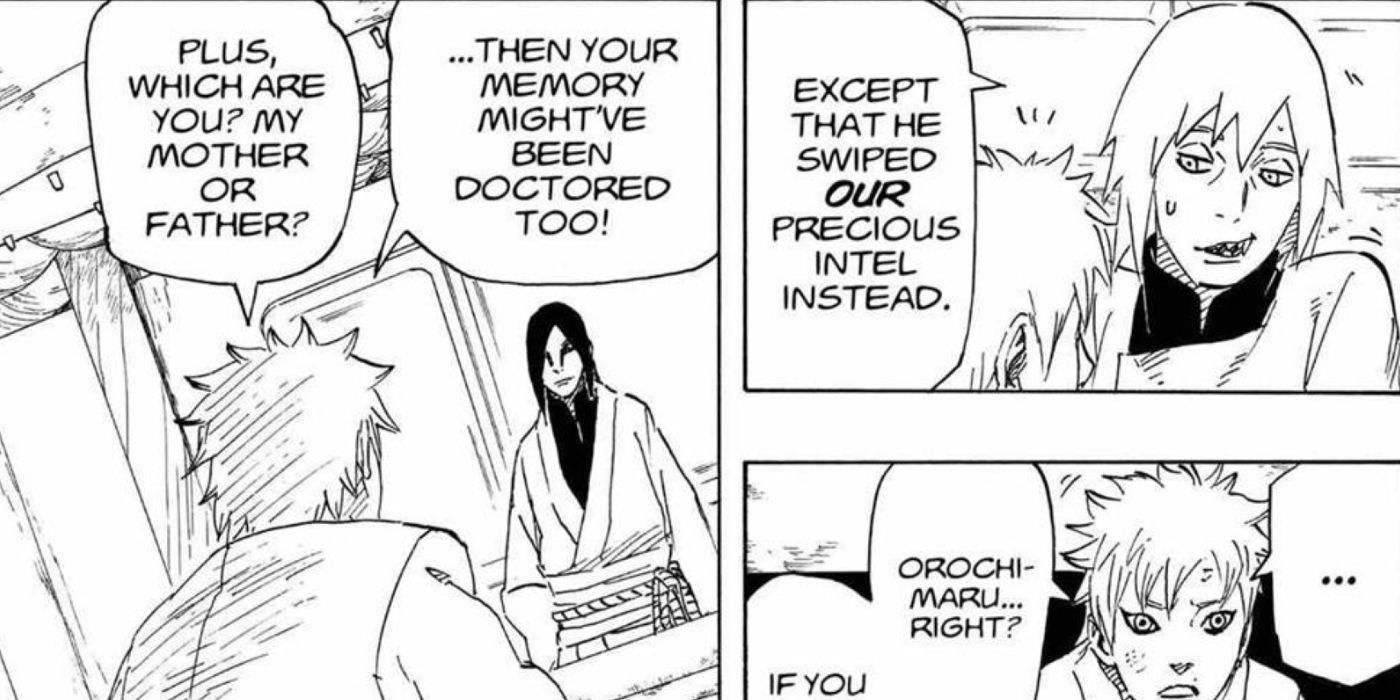While it may be surprising that Naruto has basically no canonically LGBTQ+ characters, Boruto changed that. As potentially problematic as the choice is, the sequel series confirmed that the classic villain Orochimaru is actually genderfluid.
Orochimaru is easily one of Naruto's most iconic villains. Throughout the original series, Orochimaru is obsessed with obtaining immortality through swapping bodies with powerful ninja. This most famously occurred with both Sasuke and Itachi, though the brothers were separately able to prevent their bodies from being taken over. Despite these notable setbacks though, Orochimaru would come back from several deaths. Orochimaru actually managed to make it to the end of Naruto alive, despite everything, and Boruto followed up on this by introducing Orochimaru's clone/son and the one ninja with a cooler sage mode than Naruto, Mitsuki.
In Boruto chapter 3.5, readers learn more about Mitsuki and his relationship to Orochimaru. After waking up in Orochimaru's lab with his memory wiped, Mitsuki asks a critical question of Orochimaru; "Which are you? My mother or father?" to which the former villain responds that the question is irrelevant. A similar scene in the anime takes this even further, with Orochimaru saying that he's appeared as both a man and a woman but that it doesn't really matter. Though the inclusion of a canonically genderfluid character into the Naruto canon is praiseworthy, the fact that it's Orochimaru is more complicated when considering the villain's history.
It's no understatement to say that Orochimaru is one of Naruto's most monstrous villains. Unlike some threats such as Gaara, Paine, or Obito, Orochimaru isn't simply a good person misguided by significant trauma. Instead, Orochimaru is entirely driven by arrogance and spite. His plan to steal the bodies of people like Sasuke and Itachi is nothing short of horrific. Orochimaru is a villain that comes with a great deal of baggage, especially when it comes to Queer coding, so it's understandable if non-binary Naruto fans aren't exactly cheering for this slice of representation. On the other hand, despite his numerous war crimes, Orochimaru has clearly changed quite a bit by the time of Boruto. Though Orochimaru's methods for setting Mitsuki on his path are questionable at best, it's obvious that Orochimaru does care about his son and wants what's best for him. The result of all this is a mixed bag in terms of representation.
While some of the problems with making Orochimaru non-binary are inherent to what's known about the character in Naruto, some parts of it just come down to the series' general lack of representation. In a series with a cast as wide and varied as Naruto's, it's an unfortunate symptom of the era it was made in that the series' only prominent Queer character is a former villain obsessed with stealing bodies. Fans of Naruto can only hope that Boruto introduces more Queer ninjas with less problematic history in the future.


